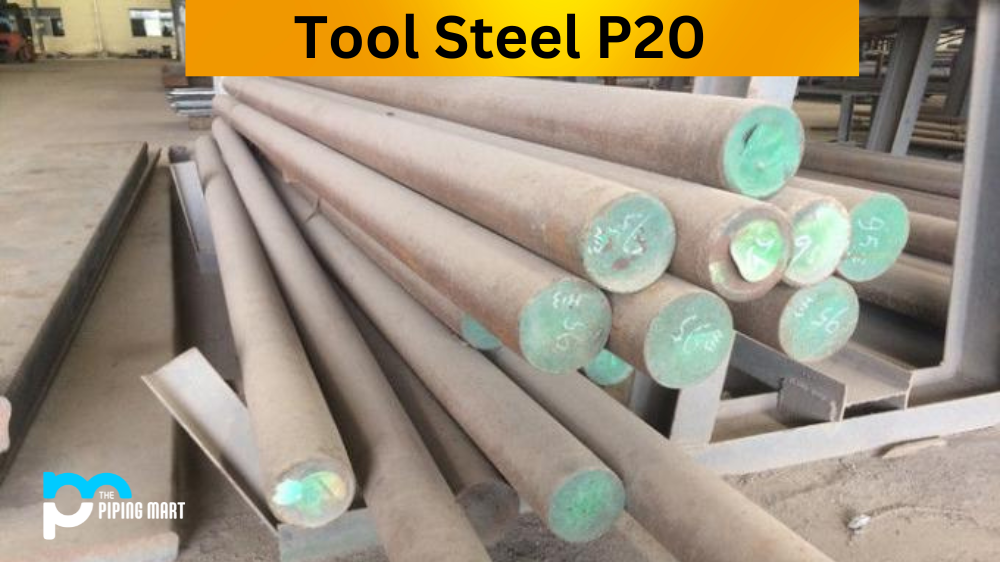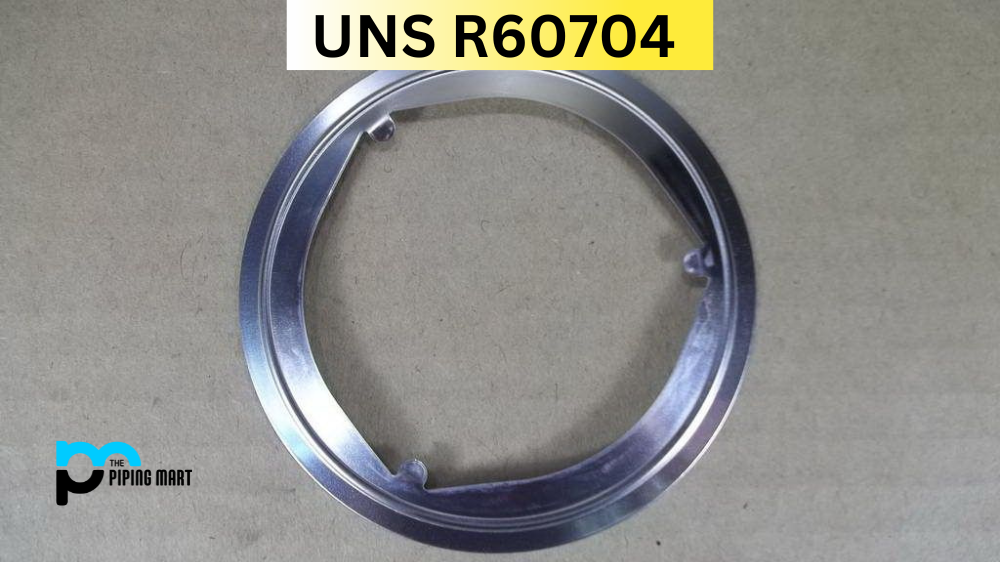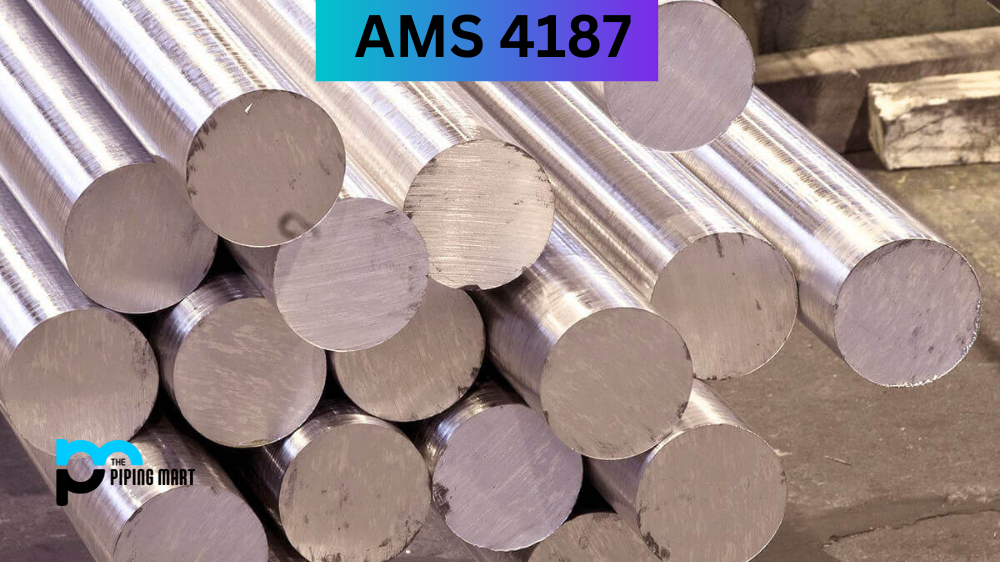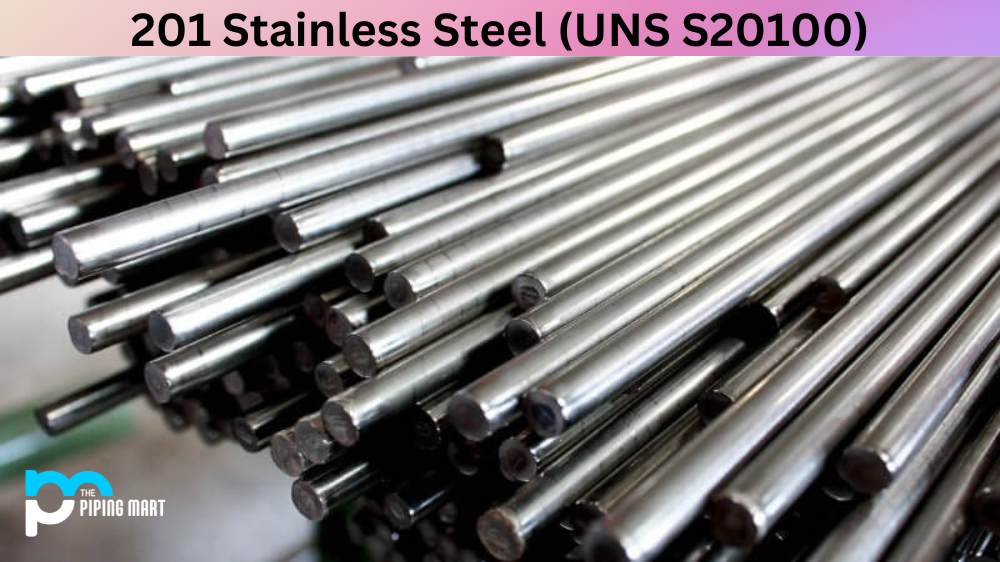Tool steel P20 is a mold-quality alloy steel that is characterized by its uniform through-hardening, good machinability, excellent polishability, and high strength. In addition to its impressive mechanical properties, UNS T51620 also provides superb corrosion resistance and heat resistance. This makes it a great choice for many applications where other materials may not be suitable. Let’s take a closer look at the uses and properties of P20 Tool Steel.
P20 Tool Steel Composition
| Element | Content (%) |
|---|---|
| C | 0.28-0.40 |
| Mn | 0.60-1.00 |
| Si | 0.20-0.80 |
| Cr | 1.40-2.00 |
| Mo | 0.30-0.55 |
| Cu | 0.25 |
| P | 0.03 |
| S | 0.03 |
P20 Tool Steel Physical Properties
| Properties | Metric | Imperial |
|---|---|---|
| Density | 7.85 g/cc | 0.284 lb/in3 |
P20 Tool Steel Mechanical Properties
| Properties | Metric | Imperial |
|---|---|---|
| Hardness, Brinell (typical) | 300 | 33 |
| Hardness, Rockwell C (typical) | 30 | 30 |
| Tensile strength, ultimate | 965-1030 MPa | 140000-150000 psi |
| Tensile strength, yield | 827-862 MPa | 120000-125000 psi |
| Elongation at break (in 50 mm (2″)) | 20.0% | 20.0% |
| Compressive strength | 862 MPa | 125000 psi |
| Charpy impact (V-Notch) | 27.1-33.9 J | 20.0-25.0 ft-lb |
| Poisson’s ratio | 0.27-0.30 | 0.27-0.30 |
| Elastic modulus | 190-210 GPa | 27557-30457 ksi |
P20 Tool Steel Thermal Properties
| Properties | Conditions | ||
|---|---|---|---|
| T (°C) | Treatment | ||
| Thermal expansion | 12.8 x 10-6/ºC | 20-425 | – |
P20 Tool Steel Equivalent
- ASTM A681
- UNS T51620
- DIN 1.2330
P20 Tool Steel Uses
Due to its impressive properties, tool steel P20 is widely used in the production of plastic injection moulds, die-casting dies, forging dies, and extrusion dies. It is also often used in high-performance knife blades due to its toughness and durability. Additionally, tool steel P20 can be used for some light engineerings applications such as jigs and fixtures.
Corrosion Resistance
One of the most impressive features of tool steel P20 is its corrosion resistance. This makes it a great choice for application in areas where rust or corrosion could be an issue. The high chromium content of this material helps to provide superior corrosion protection while maintaining the excellent mechanical properties characteristic of alloys with low carbon content.
Heat Resistance
Another great feature of tool steel P20 is its heat resistance. This makes it ideal for use in applications that require exposure to higher temperatures, such as engine components or exhaust systems. The high chromium content also helps provide superior heat resistance while maintaining the excellent mechanical properties characteristic of alloys with low carbon content.
Heat Treatment
In order to obtain the desired mechanical properties from tool steel P20, heat treatment must be applied after machining or welding has been completed. This involves heating the material up to 2200°F (1205°C) before cooling it slowly in order for the desired properties to be achieved. It should be noted that this procedure should only be carried out by experienced professionals who understand how best to treat this particular alloy in order to get optimum results.
Machining
Due to its uniform hardness across all sections of material, tool steel P20 can be machined relatively easily compared with other grades of steel, which can vary substantially in hardness across different sections or thicknesses depending on their composition. However, it should be noted that special cutting tools should always be used when machining this grade of steel due to their hard-wearing nature, which can cause regular tools to quickly wear out if they are not up-to-scratch quality-wise!
Welding
As with any type of welding process involving steels such as tool steel p20, precautions must always be taken when applying any form of welding technique due to potential risks associated with working with molten metals such as burns/splatter etc. That said, if done correctly using appropriate equipment, then satisfactory results can usually be achieved quite easily when welding this grade of alloy, thanks again primarily due to its uniform hardness throughout, making it easier work than some other grades that are more varied in terms hardness across different sections/thicknesses etc.
Conclusion:
In conclusion, Tool Steel P2O provides an excellent balance between strength and ductility while also providing superb corrosion resistance and heat resistance making it suitable for many applications, including plastic injection moulds, die casting dies, forging dies, extrusion dies, high-performance knife blades, light engineering applications such as jigs & fixtures etc. Despite being relatively easily made using conventional cutting tools, care must still take during the machining & welding processes; however, if done correctly, satisfactory results can usually be obtained quite easily thanks mainly due to its uniformity & consistent hardness throughout. All things considered, then there’s no doubt why Tool Steel p2o has become so popular over recent years & continues to remain one most used grades available today. Thanks for reading!

Pipingmart is a B2B portal that specializes in metal, industrial and piping items. Additionally, we share the latest information and information about materials, products and various types of grades to assist businesses that are involved in this business.




